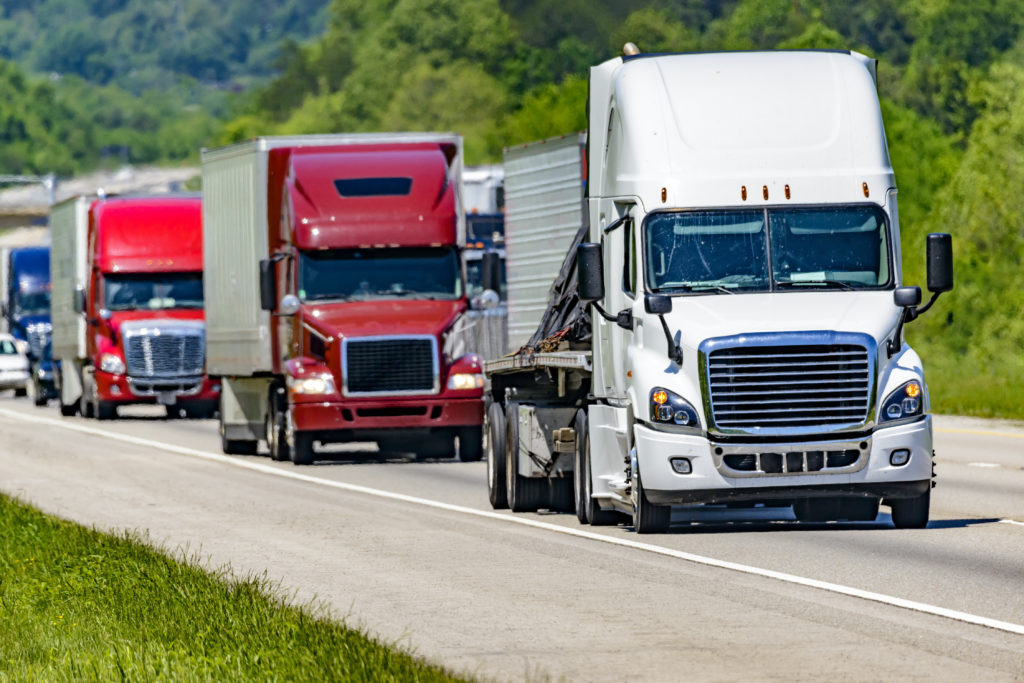Funding and policy updates in relation to federal freight programs are under discussion as U.S. Senate leaders deliberate a multi-trillion dollar infrastructure bill.
The consideration of a $1.2 trillion bipartisan infrastructure package has received strong backing from President Joe Biden as well as from Senate Majority Leader Chuck Schumer. The deliberation of the package has also brought with it Schumer’s leadership team’s goal to begin the debate over a $3.5 trillion budget plan on the Senate floor. This plan would focus upon tax policy change and the climate crisis.
A major part of the Biden Administration’s efforts in modernization are boosting severe-weather resilience and improving overall connectivity along the nation’s freight corridors. This kind of infrastructure and social program modernization, along with the infrastructure bill and policy package themselves, are key components of Biden’s “Build Back Better” plan.
“We’re going to get something done,” said Biden in a White House meeting with local and state officials. “And that’s why I think that my ‘Build Back Better’ agenda is all about not just building back, but [building] back better than what we inherited. Mayors and governors, you know how to get this done and what we have to do. It’s time to stop talking about it and time to get you the resources.”
The bipartisan infrastructure package is likely to include legislation like the highly-prioritized, $78-billion measure that will upgrade trucking, freight, and rail safety programs across the country, senior congressional staffers and transportation policy experts claim. Freight network improvements are a main focus of Schumer and other Democratic Leaders throughout the House and the Senate.
Through reconciliation, a budget bill like this could advance with a simple majority vote, although an infrastructure policy bill would need high levels of bipartisan Senate support to override debate filibuster policies. Congress is also likely to halt August recess legislative action.
“If we pass this, this is the most profound change to help American families in generations,” said Schumer.
In general, democratic goals will comprise many of the Senate’s budget this year, added Speaker Nancy Pelosi.
“The Senate budget will contain many of House Democrats’ top priorities, including transformative action on the investments needed to confront the climate crisis, to transform the care economy, and to expand access to health care,” she said..
Still, many Senate Republican leaders oppose these proposals due to their focus outside of what typically encapsulates the infrastructure system–such as health programs, social care, and methods of addressing the climate crisis.
“Our colleagues need to take this summer and think very carefully about what they’re discussing.” said Senate Minority leader Mitch McConnell. “It would be hard to imagine a proposal less suited to the conditions our country is facing. Americans cannot afford another socialist borrowing, taxing, and spending spree that will kill jobs and raise costs for working families.”
Through the Commerce Committee’s highway policy bill, $4.6 billion would be offered to the Federal Motor Carrier Safety Administration to fund safety initiatives, law enforcement training, and human trafficking education programs for commercial vehicle companies and drivers. It would also set forth around $1.2 billion annually for the Infrastructure for Rebuilding America (INFRA) grants program, and allow an additional $1.5 billion each year for the Department of Transportation’s infrastructure grant program. Another $2 billion would be dedicated to other nationally significant transportation projects.
Additionally, the bill would implement an apprenticeship program to help commercial driver license holders under the age of 21 to be able operate commercial motor vehicles within interstate commerce operations.
“This important bipartisan legislation makes a $78 billion down payment on rebuilding and revamping our nation’s critical infrastructure, a key to our economic future and creating jobs,” noted Maria Cantwell, Commerce Committee Chairwoman. “Together, this committee succeeded in passing legislation that makes [an] infrastructure investment that we need to be competitive in a global marketplace.”





